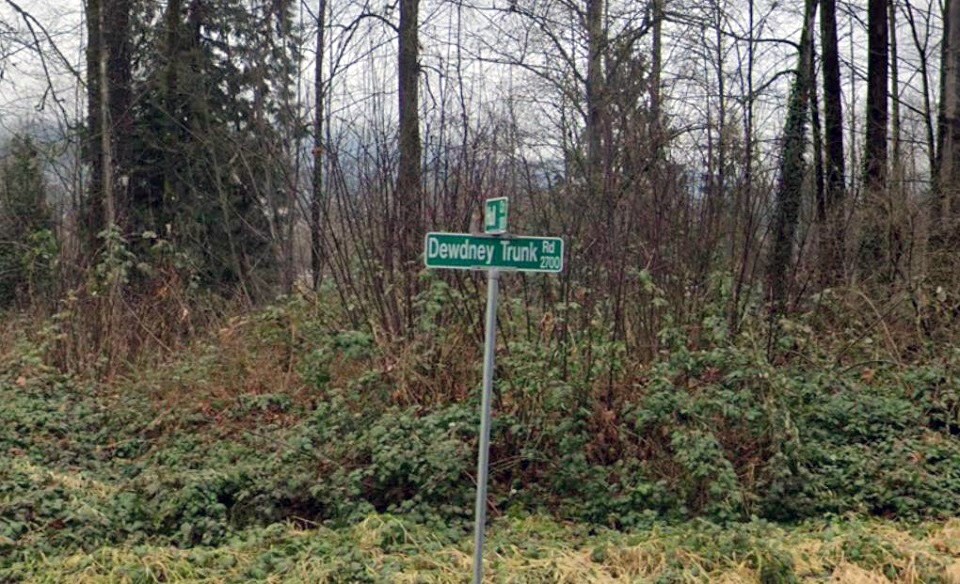Dewdney Trunk Road is considered to be a "lifeline" for some Coquitlam high school students as it acts as a major artery paralleling south of Barnet Highway.
It's a thoroughfare that actually stretches in broken sections from Port Moody along the regions north of the Fraser River to Mission — also considered one of the earliest main roads in the Fraser Valley.
Today, a group of Dr. Charles Best Secondary students is urging Coquitlam government officials at all levels to consider renaming the local road as another step towards Truth and Reconciliation with Indigenous Peoples considering its "notorious" legacy.
Dewdney refers to Edgar Dewdney, a late 19th-century Canadian politician.
AN INFAMOUS HISTORY
Originally born in England, Dewdney emigrated to B.C. as a surveyor and road builder, but eventually settled in the Northwest Territories to serve as its lieutenant-governor from 1881 to 1888.
He's widely criticized for racist relations with Indigenous and Métis nations which included withholding food sources as a means for land control and to push them into reserves, resulting in thousands of deaths from starvation.
Many Cree and Assiniboine people reportedly died trying to settle at Cypress Hills in 1882, when Dewdney also acted as "Superintendent of Indian Affairs" as he allegedly used the tactic to get treaties signed.
According to the University of Toronto press, Dewdney was quoted, "the longer they continue to act against the wishes of the Government, the more wretched will they become."
Critics say Dewdney's action resulted in genocide during his time in parliament.
It's also said he feared what the younger generation of Indigenous Peoples would bring forward after the Northwest Rebellion of 1885.
According to historians, he used this as an argument to justify the creation of residential schools, claiming removing them from their parents and communities would turn them into "model citizens."
He went on to serve as B.C.'s lieutenant-governor between 1892 and 1897. He died in Victoria in August 1916.
"A SMALL STEP"
Fifteen Charles Best Social Studies 9 students have personally penned letters asking Dewdney Trunk Road to be renamed to something that either represents the community or honours the Kwikwetlem First Nation.
"Changing the name of the road would be a small step in the right direction for Truth and Reconciliation in Coquitlam," writes Ava Vukovic.
"Something as simple as this could go a long way in the community, showing the fact that we care. If the government can make a national holiday for the reconciliation of Indigenous communities, it is safe to say that changing the name of a road is not so far out of reach."
Last summer, 215 unmarked graves were found at the former Kamloops residential school, sparking conversation about the treatment of Indigenous Peoples, including children, by the Canadian government.
Since that discovery, thousands more were found across the country, and vigils and tributes took place to honour victims and present-day survivors.
Given Dewdney's connection to the implementation of residential schools, Vukovic believes it would be appropriate to consider Coquitlam's reputation if it keeps his name on a street sign.
"It feels as if our country is in a constant state of contradiction as the government is only telling people what they want to hear instead of acting upon it," she further writes in her letter for Coquitlam city council, Port Moody-Coquitlam MP Bonita Zarrillo, Port Moody-Coquitlam MLA Rick Glumac and Rachna Singh, B.C.'s parliamentary secretary for anti-racism initiatives.
"Our government should care about what has happened in our country instead of simply making it seem like it with half-truth apologies and honouring the wrong groups of people."
The students are part of Charles Best's Social Studies 9 class, whose teacher is Megan Leslie.
In May 2021, Leslie, who is also a Social Justice 12 teacher, participated in a campaign where she and her students hung red dresses in front of the school to remember and raise awareness about missing and murdered Indigenous women and girls (MMIWG).
This year's Grade 9 students who have written and signed letters in support of a name change include Jesse Brezinski, Cathy Cai, Madelyn Carey, Wayne Chiu, Aoife Hughes Masson, Reese Kilty, Nathan Lin, Kaitlyn Lee, Sophia Lindvik, Jaime McNaughton, Deegan Niska, Mohnish Peshin, Keira Rutledge, Sayda Magtoto and Afnan Alabar.
As of today, Jan. 20, the initiative received support from Port Moody-Coquitlam MP Bonita Zarrillo and Coquitlam Coun. Chris Wilson. Port Moody-Coquitlam MLA Rick Glumac has acknowledged he has received the letters and is preparing a response.
For immediate assistance to those who may need it, the National Indian Residential School Crisis Line is available 24 hours a day at 1-866-925-4419.





